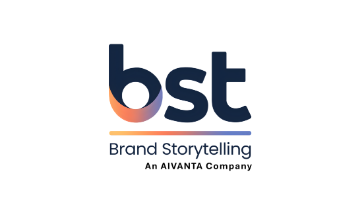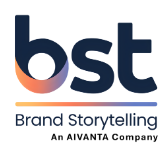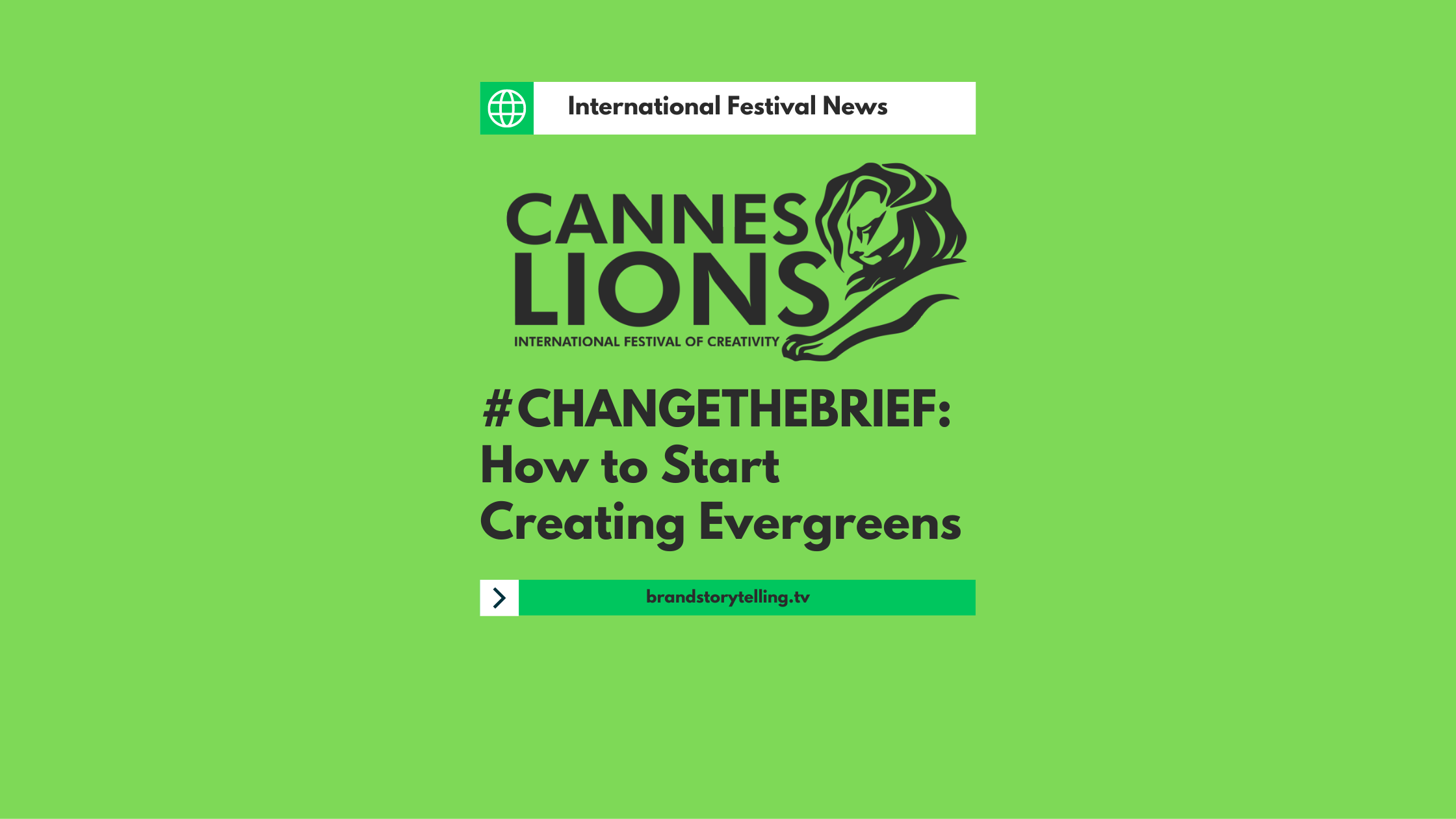Carlijn Postma, Speaker and Author of ‘Binge Marketing’
The Cannes Lions Festival launched Ad Net Zero, the advertising industry initiative to leave a net zero carbon footprint. It is a great initiative to create awareness and bring the production footprint down, but something is missing. Going net zero is not just about production – it starts with strategy and creation. If this industry really wants to take responsibility, become sustainable, and achieve ad net zero, it must start with rethinking the brief. To do so, it’s time to let go of campaign thinking and start creating evergreens.
What is Evergreen Content?
Advertising has the habit of following audiences in our media landscape, but over the past few decades, this media landscape has become overwhelmed, resulting in single-use, disposable content spread out over too many channels. It has become a cycle – one that generates the one thing we don’t need: more single-use, disposable content, the hidden polluter of our industry. We need a more sustainable approach to our marketing efforts and need to stop creating content waste that lasts only one day, or for the brief duration of a limited campaign. This is true at every stage: strategy, creation and distribution.
Let’s look at a few of the Cannes Lions winners in the film category to ask and answer questions that represent the key tenets of what evergreen content looks like:
Can the Story Stand the Test of Time?
Chipotle’s Cultivate Foundation (Silver Lion)
Ten years ago, Chipotle launched its first stop motion film Back to the Start. Chipotle’s agency Observatory described it as following: “Back to the Start told the story of a family farmer who loses his way, turning his family farm into a factory farm before realizing his mistake and going back to the start.” A decade later they’ve collaborated again on, as I see it, the sequel. The story continues in A Future Begins, picking up the Back to the Start story ten years later. The family farm is being passed onto the son and daughter in law, showing a lot of challenges farmers encounter, which appealing to today’s farmers in the US.
These two movies show great consistency in story, characters and even music by using two songs by Coldplay in an adapted version. Watching this second film makes you want to watch the first one too, even though it was made ten years ago. The storyline and the characters appear to be timeless. Although it presumably wasn’t written in the brief ten years ago that it should get a sequel a decade later, we can assume that using storytelling techniques like they did in these films is key for creating evergreen content.
Is it or can it be Serial?
Apple’s Escape From the Office (Grand Prix)
This Grand Prix winner of Apple at Work is a nine-minute film with the so-called Underdogs -four diverse characters who work together in a team at an office with a horrible boss. These characters were introduced several films ago, their stories progressing with each episode. In this award-wining episode they quit their jobs and start their own business, facing all the challenges new business owners encounter. These three films can be called a series. Most series are evergreen because they’re based on a consistent storyline, recognizable characters, themes, and genre. The first episode was uploaded 3 years ago on Apple’s YouTube channel. The second was uploaded two years ago. And the latest, which won a Grand Prix, was uploaded 4 months ago.
Adding new episodes with recognition in story and characters also stimulates the views of previous films, or later episodes when distributed right, much in the same way that a new season of Stranger Things attracts a new audience for previous seasons as well. These are simple, actionable ways marketers can learn from the creators of films and series like the Underdogs.
Is it High Quality?
Another great film was created by ServicePlan Munich (Germany) for Penny.de. This film also won the Grand Prix for Film Craft. But is it evergreen or is it campaign content? I believe it started as a campaign. Penny.de, the smallest retailer of the country, addressed the biggest issue of that time: ‘From 2019 to 2021 teenage life was basically canceled’. In this beautifully crafted film, we see how a mother wishes for her son to get his teenage life back as it’s supposed to be, with normal teenage problems like break-ups, drinking too much, sneaking out of the house and more. The film went viral in 24 hours as the message was that Penny gave away 5,000 experiences teenagers missed out on. This is a campaign message fueled by a great short film that made it to almost every media headline in the country.
Patrick Milling-Smith, Co-Founder & CEO of SMUGGLER Inc. and jury for Cannes Lions category Film Craft added at the press conference: “If this was given into the wrong hands it could have been a disaster, but done with great people, this really became a piece of art.” This is another key to creating evergreen content: quality. In itself, this film does not seem to match the identity of Penny.de when you look at their website, but this film really is a piece of art and also a timestamp in history on teenage life during the pandemic. With an engaging film that may last for years. I really hope that Penny will pick up on this story again, maybe like Chipotle, or in a series like Apple at Work, but then they will benefit even more from this successful film.
Evergreens will Give You Better Results in the End
Many marketers take satisfaction in reach achieved within their target group, but when that is shifted into engagement, or time spent with content of the brand, it becomes clear that there is still much to gain. What stands to be gained can be learned from the creators of films and series. For example: The Duffer Brothers won’t get to create another season of Stranger Things if the audience only watched 20 minutes of the first episode. Yet, looking at marketing, we count every second people viewed our content and while adding up the numbers we call it a success (I’m not even mentioning the fact that these viewers were paid viewers).
What if we add another KPI borrowed from Netflix? Netflix analyzed more than 30 international series that were screened across all continents. The aim of this research was to pinpoint at which episode viewers flipped a switch and decided to binge-watch the rest of the series. When 70% of viewers continue watching the full series, Netflix considers them hooked. Hence, the term ‘the hooked episode’. This seems to be a universal trend. Just a few examples:
Stranger Things – episode 2
Narcos – episode 3
Making a Murderer – episode 4
Gilmore Girls – episode 7
*Fun fact: The Dutch appear to be the first to get hooked on a series, on average one episode earlier than the rest of the world.
So, it’s time to ask the same question again; what if brands acted like a subscription-based content provider? Would they be satisfied with paid views and run off to the next campaign? Or would they be more interested in real engagement, lean in audiences, and in content that will last longer than a campaign? What if brands invested in new episodes that kickstart previous episodes and results in more quality time with the audience? What do you think will happen to the connection between brands and their audiences in this case? Let’s start turning the wheel towards sustainable marketing and start creating evergreens. That is how our industry can contribute to a lower carbon footprint and get even better results.
—
Cannes coverage will continue as Carlijn dives deeper into the future of brand film.
About Carlijn Postma

Carlijn Postma is a Dutch marketing strategist. She is founder of The Post, a leading Dutch agency for content marketing. She is a speaker and author, her latest book is called ‘Binge Marketing, the best scenario for building your brand’. The work she does in the world of content marketing is not going unnoticed. Carlijn Postma is an oft-requested speaker at international events. In 2017, she was chosen as the Dutch Content Marketing Woman of the Year. In 2014, she ranked 27th on the international list of the two hundred most influential people in the field of content marketing.







Leave a Comment